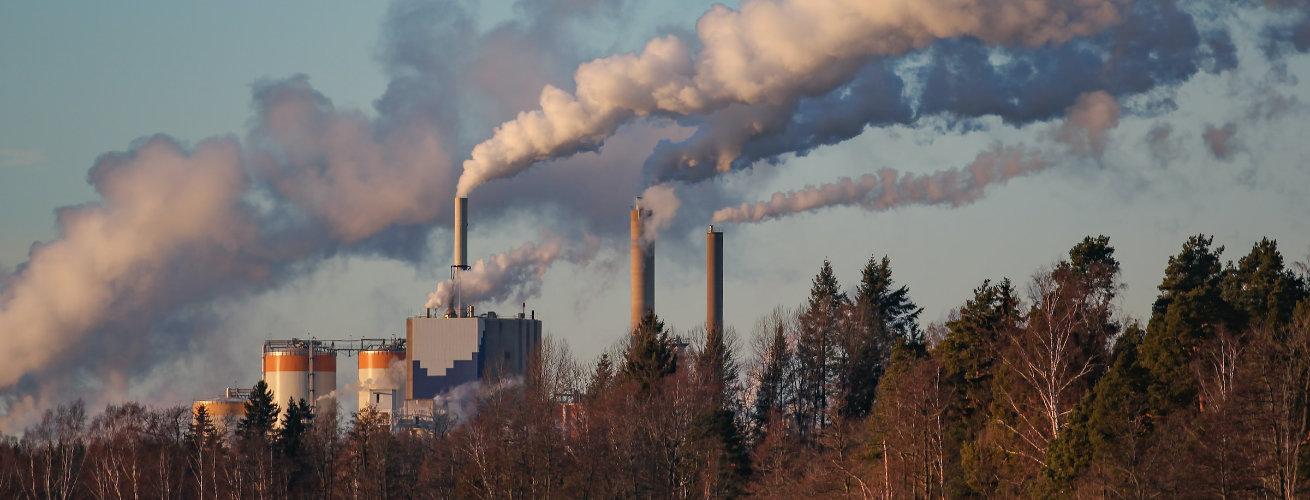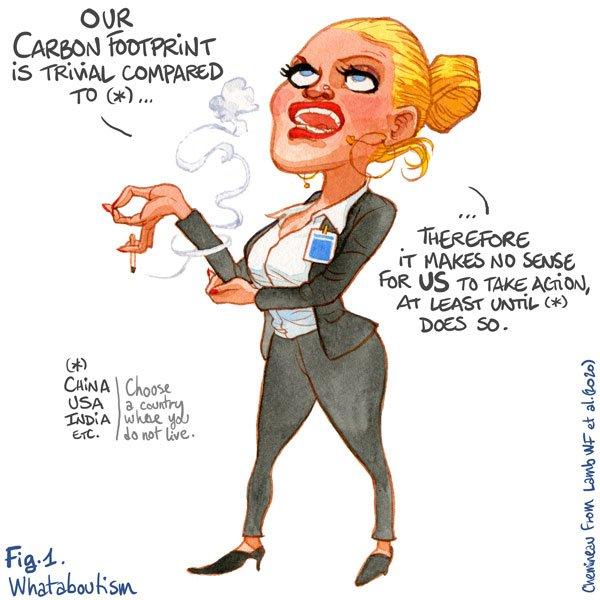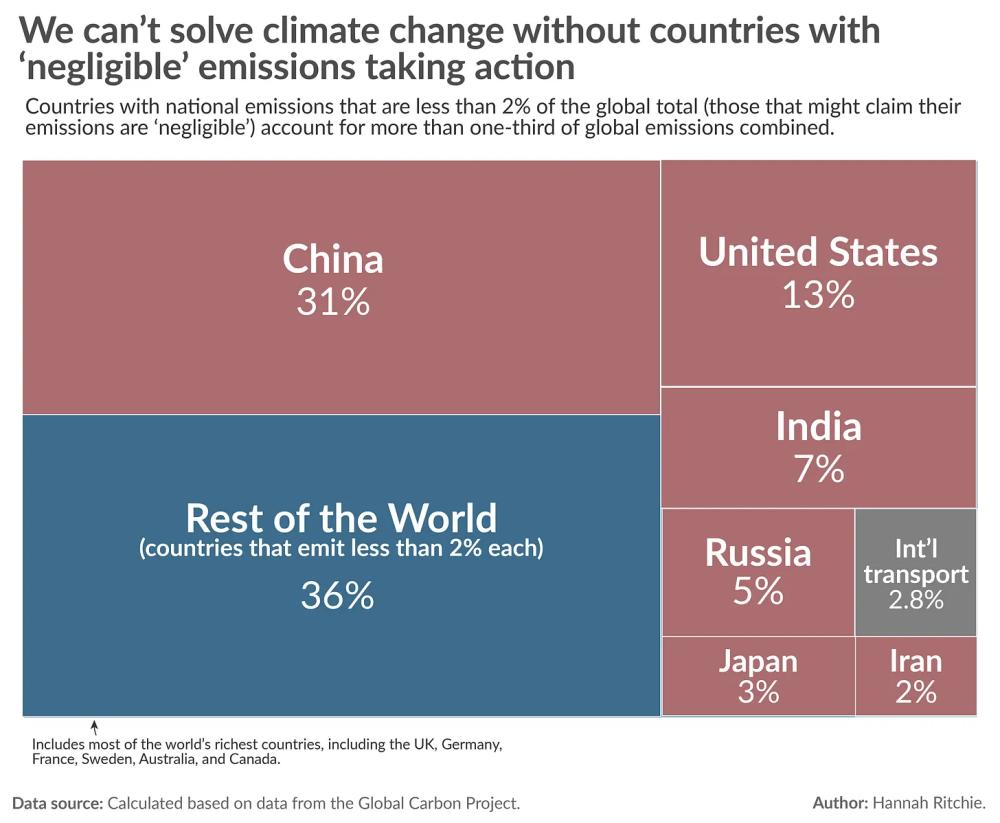
"The most important thing is not if Sweden reduces its emissions - the most important thing is that China does."
If China and the rest of the world’s biggest emitters do nothing, we will fail. But we will also fail if small emitters like Sweden do nothing.
Swedish media today reported on a new poll that showed that nine out of ten right-leaning voters in Sweden considered China’s emissions to be more important than Sweden’s own emissions. The question asked was: "Does China affect the climate more than Sweden? Claim: The most important thing is not if Sweden reduces its emissions - the most important thing is that China does."
 91 percent of people who vote for the right-wing parties in Sweden thinks that the most important thing is that China reduces its emissions, not that Sweden reduce its own emissions.
91 percent of people who vote for the right-wing parties in Sweden thinks that the most important thing is that China reduces its emissions, not that Sweden reduce its own emissions.
Interestingly, the poll also shows that there is a big difference between the right-leaning and left-leaning political blocs regarding how many "fully" or "partially" agree with the statement, even if there is a majority on both sides. Of the voters who vote for "left-leaning" parties, only 57 percent agree with the above argument.
Obviously and to no surprise to no one, a whopping 96 percent of people who vote for the Sweden democrats, which is a nationalist and far-right populist political party with literal Nazi roots, agrees with the statement.
This might not sound like such a big deal. After all, China’s share of global CO2 emissions (30,9 percent in 2021) dwarfs Sweden’s share of global emissions (0,1 percent in 2021). Considering this, of course the most important thing is that China reduces its emissions, not that Sweden does.
Right? Well, yes, but mostly no.
It’s true that the emissions of many – if not most – countries in the world are dwarfed by a few big countries; namely China, United States (USA), India, and Russia (in that order). But that doesn’t mean that smaller and rich countries like Sweden, that has what some might consider negligible emissions, are off the hook when it comes to climate change. What Sweden and these other small countries does actually do matter a lot.
Yes, if China and the rest of the world’s biggest emitters do nothing, we will never be able to tackle climate change. Obviously. But we will also fail if small emitters like Sweden do nothing.
Just have a look at the graphic below (and read this excellent article by Hannah Ritchie that explores this topic much deeper).
The graphic shows that the emissions from countries that emit less than 2 percent of global CO2 emissions collectively emit more than China.
Now imagine if all of these countries decided to do nothing.
And yes, these are “production-based” emissions, i.e. how much each country emits domestically. The numbers therefore don’t take into consideration how many of the world’s richest countries – like Sweden – have offshored some of their production emissions to countries like China. But even if you compare “consumption-based” emissions, the result doesn’t change much. China’s emissions go down a little, and the emissions from the United States goes up a little. This doesn’t give the argument that China’s emissions are more important any more weight.
Consider the moral argument that’s based in climate justice. Rich countries have emitted more historically. In 2021, Germany’s share of global CO2 emissions was 1,82 percent. That’s not much. But Germany accounts for more than 5 percent if we consider the country’s historical emissions. Rich countries like Sweden and Germany have developed their countries and economies thanks to the cheap extraction and use of fossil fuels.
There is also the technical aspect of this. Rich countries have the ability and the money to easily innovate, invest and deploy low-carbon technologies. For example, the price of solar and wind and battery technology have plummeted in recent decades as rich countries invest in and deploy more low-carbon technologies. And when rich countries invest in low-carbon technologies, they will bring prices down for the rest of the world.
And this will directly benefit poorer countries and help them to use renewable energy instead of fossil fuels to develop their economies. And this is exactly what we need. We need low-carbon technologies to be cheaper than fossil fuels.
Small countries can also become climate leaders and set expectations for the rest of the world. They can act as role models and show that it is possible to decarbonize our economies and transition to renewable energy.
Rich countries have a moral obligation to reduce their emissions – no matter their size and share of CO2 emissions today. And they need to get their emissions down to zero as quickly as possible so that poorer countries can also develop their economies and improve the lives of their citizens while the world stays within the global carbon budget.
Climate change is a global problem that requires international collaboration – from everyone. We can only succeed if we work together. The argument that my own small country shouldn’t reduce its emissions before one of the big polluters like China does is nothing more than a nationalistic cop-out.
The people who use and push for this argument online are mostly the same people who a few years back were climate deniers. But these days they would sound crazy if they denied the overwhelming science of climate change, and no one in their right mind would take them seriously. So now they’ve evolved, but their agenda is still the same. They wouldn't call for emission reductions even if they lived in one of the big polluting countries because they don’t consider climate change a man-made crisis. It’s just another argument they use to downplay the climate crisis and their own responsibilities while slowing down meaningful climate action.
Don’t believe them. Continue to push for climate action that is just and based on science.
The cover photo shows smoke rising towards the sky from the chimneys of a paper mill in Sweden. Photo by Daniel Moqvist.


Recommended Comments
Join the conversation
You are posting as a guest. If you have an account, sign in now to post with your account.
Note: Your post will require moderator approval before it will be visible.